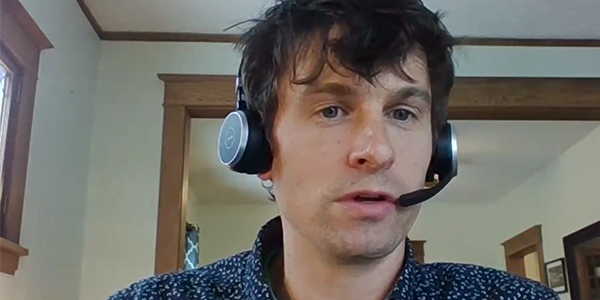The rejection by NERC’s Standards Committee of the standard authorization request (SAR) for Project 2020-01 (Modifications to MOD-032-1) in December has left the group that submitted the request in a quandary regarding the next step for the project.
Members of NERC’s System Planning Impacts for Distributed Energy Resources (SPIDER) Working Group expressed frustration and confusion over the rejection at their conference call Tuesday. The group submitted a draft SAR for Project 2020-01 to the Standards Committee in December 2019 with the goal of “[providing] clarity and consistency for data collection [of] aggregate demand and DER [distributed energy resource] data,” and the committee approved the project and the SAR drafting team the following March. (See “Approvals,” NERC Standards Committee Briefs: March 18, 2020.)
However, committee members put the brakes on the project in light of the team’s decision not to change the SAR in response to negative comments received during the informal comment period that ended last April. (See “SAR Rejected over Industry Comments,” NERC Standards Committee Briefs: Dec. 9, 2020.) In the official rejection letter, Standards Committee Chair Amy Casuscelli said that “based on the comments received … there is insufficient stakeholder support for this project, and continued revisions of the SAR would not be productive.”
Members Dispute Committee Explanation
This explanation did not sit well with SPIDER members, many of whom had trouble understanding the decision to end a project they considered important to the future of the grid over an apparent technicality.
“How did they come to that decision?” asked Bradley Marszalkowski, senior engineer at ISO-NE. “I would argue that the fact that the SPIDER Working Group — which is made up of a wide range of industry professionals from all over the country — is saying that the SAR is needed would indicate that there is industry support.”

Ryan Quint, NERC | NERC
Members of the SAR drafting team who participated in the call also reported feeling “disappointed” and surprised, given that the standard drafting process does not require a response to an informal comment period at all. The team had intended to address the concerns after the Standards Committee accepted the SAR and made it the official standard drafting team (SDT).
“To be honest, I was a bit surprised myself,” admitted NERC’s Chris Larson, who represented the SAR drafting team in December’s Standards Committee meeting. Larson called the rejection by the committee of a previously accepted SAR “pretty uncharacteristic”; normally, in his experience, the committee would remand a problematic SAR to the drafting team rather than rejecting it outright.
Leaders Fear Future Friction
Currently the working group’s leadership is in what Ryan Quint, NERC’s senior manager for grid security and transformation, called an “informal information gathering” mode while it explores its options regarding the SAR. This process includes conversations with Standards Committee members to discuss their issues with the drafting team and to see if they might be open to reopening the project, either with the same or a different team.

Chris Larson, NERC | NERC
Members offered additional suggestions on the call, such as expanding industry outreach to explore the objections to the SAR and see how to address them. Others said that the best way forward might be to make sure that SAR drafting teams are properly following up on industry comments, since the group “can’t do the SAR drafting team’s job for them.”
Quint suggested that members take up the baton of industry outreach themselves, pointing out that several of the committee members that voted to reject the SAR in December belonged to organizations represented on SPIDER. The fact that representatives from the same bodies apparently don’t see eye to eye could be a sign that the disconnect over 2020-01 is not an isolated incident.
“You have technical experts on the call here saying, ‘Yes, we need this,’ and the leaders in your organizations that sit on these very high-level committees voted against it,” Quint said. “That’s a problem for folks [in leadership] who have to stay in a semi-objective position … I don’t know how to deal with that, when you have one organization with a very strong ‘yes’ and a very strong ‘no’ at different levels.”




